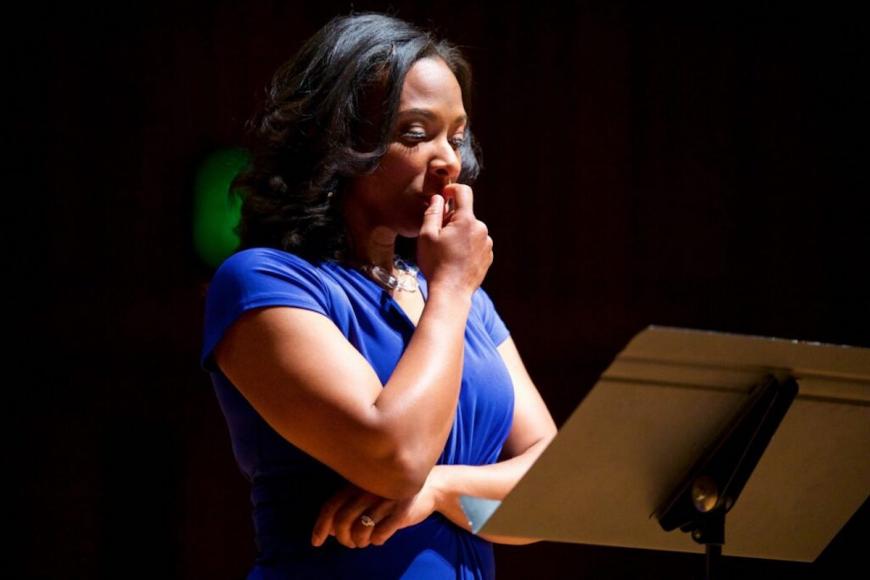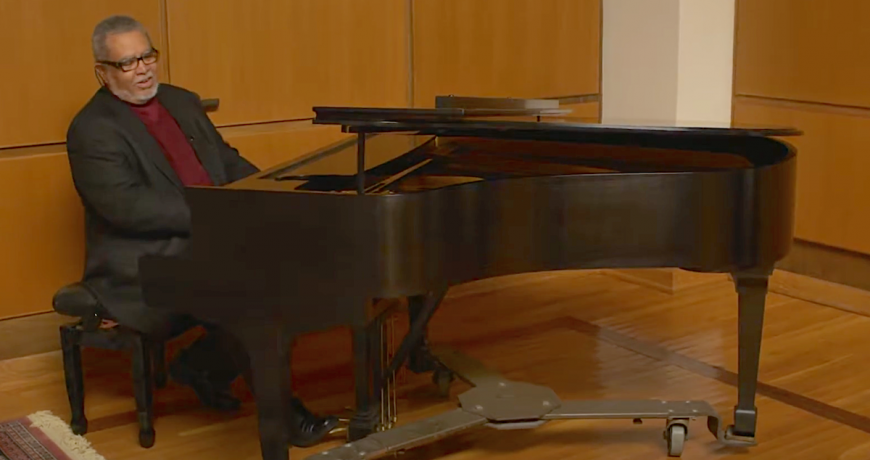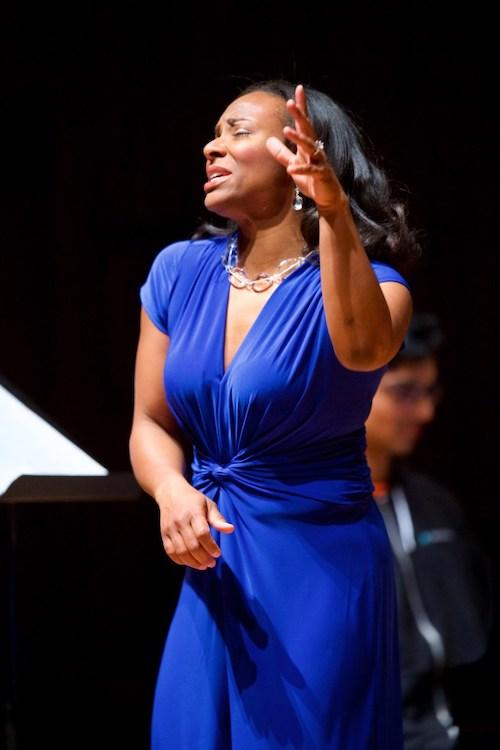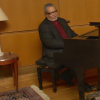
Soprano Candace Johnson has sung at Carnegie Hall and The Manhattan Center. But those prestigious guest appearances aren’t the most impressive lines of her resume. In 2018, Johnson premiered Vox in a Box at UC Berkeley, a one-woman show which integrated elements of her Black musical upbringing with her classical education to tell her own “musical biography.” Johnson teaches applied voice classes and a class on African American composers at UC Berkeley, and she has also launched a weekly vocal health program called FitnesSing! with The Marsh.
Combining her academic expertise in the work of Black composers and her passion for innovative forms of music education, Johnson is premiering a new solo performance series titled The Art Songs of Black Composers on The Marsh’s digital streaming platform MarshStream. Each performance will showcase a Black composer’s art songs, brought to life by Johnson’s unique theatrical storytelling. The first event in the series, “Music to My Ears — Hearing Adolphus Hailstork,” will be available for streaming at 7:30 p.m. on Saturday, May 22, and 5:00 p.m. on Sunday, May 23. Johnson will be accompanied by San Francisco Symphony pianist Marc Shapiro.
Those who are curious to hear Hailstork speak about his work can also tune into a conversation between himself and Johnson on Thursday, May 20 at 7:30 p.m. In future events in the series, Johnson particularly looks forward to championing women and Bay Area African American composers, such as Undine Smith Moore, Margaret Bonds, and Olly Wilson.

Johnson will be singing Hailstork’s Ventriloquist Acts of God, a five-piece song cycle which Johnson once performed for her dissertation and later premiered on the West Coast. While cataloging Willis Patterson’s collections of African American composers’ works—one of the largest of its kind—Johnson stumbled upon Hailstork’s cycle. She was floored by the intricacy and lyricism of the song cycle and the lushness of its harmonies. “Hailstork is a genius at text painting,” Johnson says.

Ventriloquist Acts of God was written for Hailstork’s friend Agnes Fuller, who pointed Hailstork to the poetry of Fuller’s friend Ellen Wise. The song cycle is set to five of her poems, the first of which the song cycle is named after. Johnson wants listeners to be attentive to how the five songs in the cycle hang together. “These three pieces — the first, the middle, and the end — are related by energy, in terms of tempo, sense of movement, and even probably harmonic motion. Then you have the contrast — number two and four — that are much faster. They both have their own sense of wildness to them,” Johnson says. She adds that “for the first and the last piece, the text has this sense of metaphysical presentation, while the text of two through four have more of a sense of physical presentation.”
Johnson has benefited from consulting Hailstork directly on her interpretation of his composition. Over a decade ago, she approached Hailstork at the African American Art Song Alliance Conference with a recording of her own performance of Ventriloquist Acts of God. He shared some insights of his own on the poetry. “He’d say, ‘Well, this poem — on the surface, it seems like it’s about a moth, but there’s something much deeper.’ That definitely impacted how I performed,” Johnson recalls.
Hailstork, who just celebrated his 80th birthday last month, is a prolific composer who incorporates a wide range of traditions and styles in his pieces. Hailstork has written three operas, is writing his Fourth Symphony, and hopes to finish his requiem cantata A Knee on a Neck, a tribute to George Floyd, this year. His music draws from a hybrid of influences, from Harlem Renaissance poets to Samuel Barber and Aaron Copland to his Episcopalian upbringing. In 2019, the Los Angeles Philharmonic commissioned and premiered his orchestral work Still Holding On — the first movement of his Fourth Symphony — which references the African American spiritual Hold On.
Johnson seeks to introduce audiences to Hailstork’s oeuvre while conveying techniques for fruitful and rewarding listening that they can apply to any composer or genre. “To some, it may seem like, oh, this is too complex! They might say, ‘I hear a voice,’ or ‘I just hear a voice and piano.’ But there’s so much more happening, and I want to teach people how to hear those things,” Johnson says. But instead of lecturing as she would in college classrooms, she will play different characters with different perspectives on the music, while mediating that conversation in the role of a university professor. One character is Adolphus Hailstork. Another, she says, “is a gentleman from the streets of Vallejo who happens to be very brilliant. In his kind of streetwise language, he says some very profound things about the music.” She adds that another point she’d like to make is that “brilliant observations don’t always come from the people we expect them to come from.”
“Hailstork’s music is so ripe for a lesson in listening. The things that are encoded in the music won’t be heard unless we are given the tools to listen for those things,” Johnson says.




